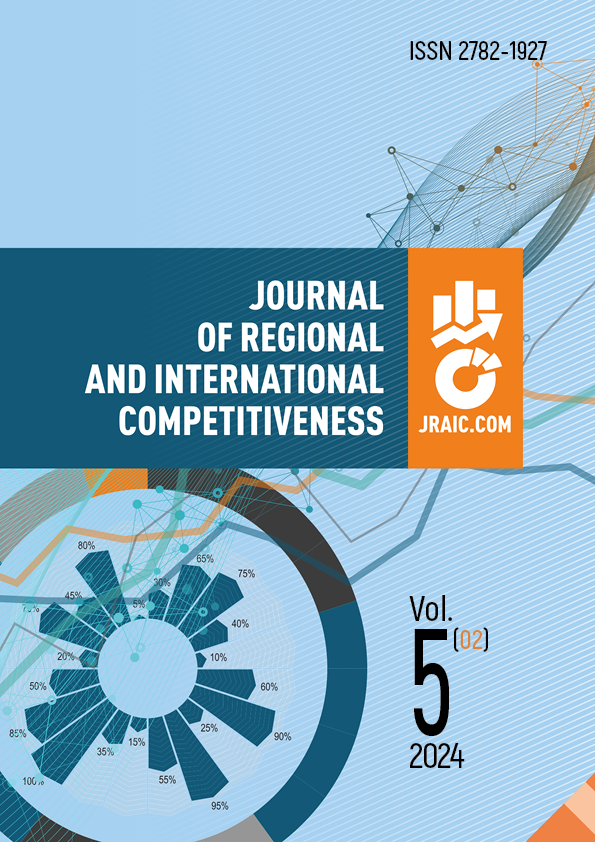Yaroslavl, Yaroslavl, Russian Federation
Yaroslavl, Yaroslavl, Russian Federation
The article examines the problem of mobilising the industrial potential of Russia in terms of the growing military danger during SMO under decrease in the demographic and labour potential of the Russian Federation. The authors emphasize the effective involvement of labour resources is a key element for development of the industrial potential. Those are necessary to counter the increasing escalation of the military conflict and the desire of Western countries for military and political defeat of Russia. However, the reduction of labour potential and the aging of the population can cause serious socio-economic and political problems. A liberal approach to migration poses long-term threats to the State. Unregulated migration processes will inevitably cause an increase in unemployment, a decrease in the share Russian nation itself, loss of national identity, social tension, and cultural, ethnic, and religious conflicts. It requires a thorough systematised approach and effective monitoring of demographic trends. The state should find a balance between attracting labour from outside and increasing its own labour resources. It also should provide the rational use of existing labour resources.
labour resources, industrial potential, migration, population, highly qualified personnel, mobilization economy, scientific potential, military danger, escalation of armed conflict, migration policy
1. Bekrenev, Yu. V., & Krylova, V. A. (2022). Russia’s transition to a mobilization economy: opportunity and expediency. Teoreticheskaya ekonomica, 6(90), 63-71. Retrieved from https://cyberleninka.ru/article/n/ perehod-rossii-k-mobilizatsionnoy-ekonomike-vozmozhnost-i-tselesoobraznost (in Russian).
2. Bekrenev, Yu. V., Vakina, A. S., & Voropaeva, E. E. (2023). Market economy and Russian industrial potential in the context of military escalation. Teoreticheskie i prakticheskie aspekty cifrovizacii rossijskoj ekonomiki: sb. tr. VI Mezhdunar. nauch.-prakt. konf., Sankt-Peterburgskij gosudarstvennij universitet. (pp. 1203-1214). Sankt-Peterburg: Sankt-Peterburgskij gosudarstvennij universitet (in Russian).
3. Bekrenev, Yu. V. (2024). Market economy capability to ensure the large-scale development of Russia’s industrial potential in conditions of military danger. Teoreticheskaya ekonomika, (1), 24-42. Retrieved from http://www.theoreticaleconomy.ru (in Russian).
4. Chen, W. (2023). Reproduction of labour resources: on the issue of a sociological approach. Society: sociology, psychology, pedagogy, 6(110), 79-85. Retrieved from https://cyberleninka.ru/article/n/vosproizvodstvo-trudovyh-resursov-k-voprosu-o-sotsiologicheskom-podhode
5. Soboleva, S. V., Smirnova, N. E., & Chudaeva, O. V. (2016). The demographic situation in Russia: the present and the future. Mir novoj ekonomiki, (3), 106-115. Retrieved from https://cyberleninka.ru/article/n/ demograficheskaya-situa-tsiya-v-rossii-nastoyaschee-i-buduschee (in Russian).
6. Komarova, N. S. (2013). Problems of labour migration in France: experience for Russia. Vestnik ekonomiki, upravleniya i prava, 1(22), 94-103. Retrieved from https://cyberleninka.ru/article/n/problemy-trudo-voy-migratsii-vo-frantsii-opyt-dlya-rossii (in Russian)
7. Andryushchenko, K. D. (2019). Emigration of highly qualified specialists from Russia: trends and consequences. Bulletin of the Expert Council, 4(19), 79-84. Retrieved from https://cyberleninka.ru/article/n/ emigratsiyavyso-ko-kvalifitsirovannyh-spetsialistov-iz-rossii-tendentsii-i-posledstviya
8. Poletaev, D. V. (2012). Educational migration to Russia: existing practices and possible prospects. Nauchnye trudy: Institut narodnohozyajstvennogo prognozirovaniya RAN, (10), 390-406. Retrieved from https://cyberleninka.ru/article/n/uchebnaya-migratsiya-v-rossiyu-suschestvu-yuschie-praktiki-i-vozmozhnye-perspektivy (in Russian).




















